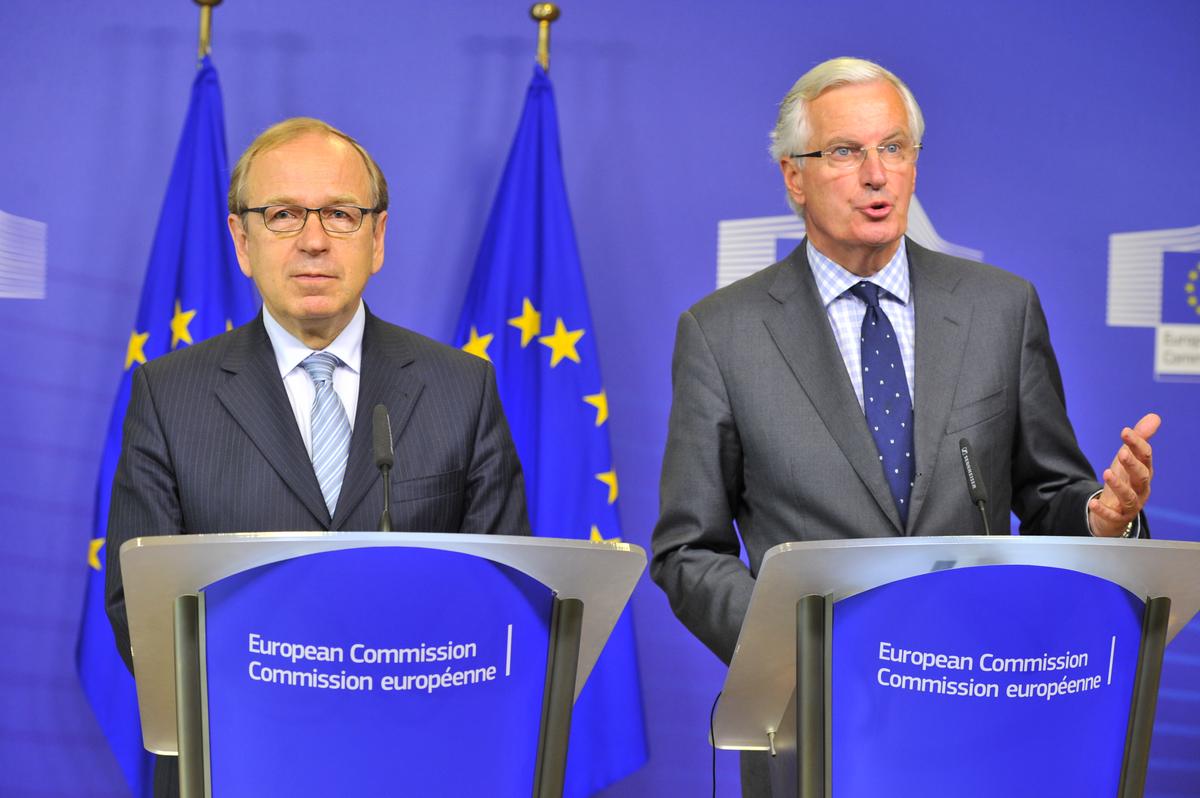Representatives for the United Kingdom (U.K.) and the European Union (EU) kicked off Brexit negotiations in Brussels on June 19, almost 12 weeks after Britain’s prime minister triggered the mechanism that would let it depart from the EU.
Acknowledging the difficult talks ahead, British Secretary for Brexit David Davis, said the talks would be held in a constructive and positive atmosphere, and would deliver a deal “that works in the best interests of all citizens.”
Negotiator for the EU, Michel Barnier, said he hoped the initial talks would focus on a timeline for the negotiations and priorities for it. One priority he laid out was the border between Ireland and Northern Ireland.

EU Commissioner for Internal Market and Services Michel Barnier (R) and the governor of the Bank of Finland, Erkki Liikanen, at a press conference in Brussels, Oct. 2, 2012. GEORGES GOBET/AFP/GettyImages





